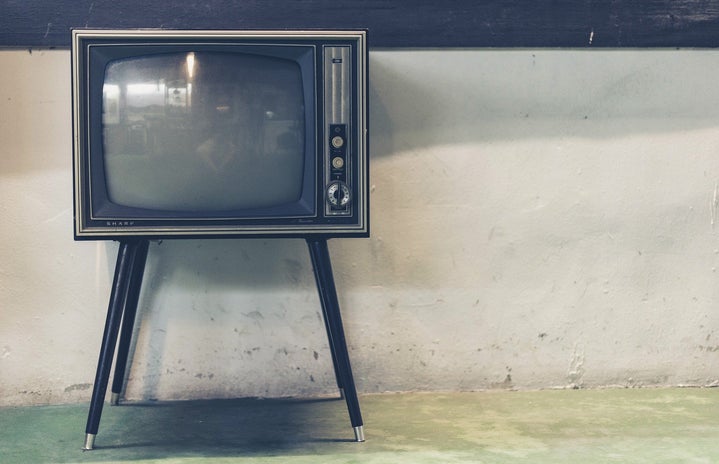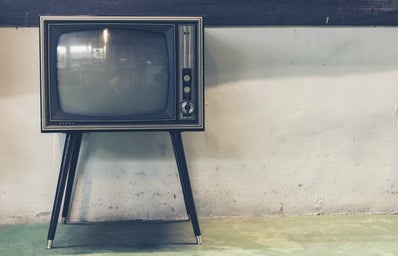Expect the unexpected. Since its very first season on the air, this telling phrase has been the motto of Big Brother, an American reality television show based off of a Dutch version started in 1997. A number of other countries have tried their hand at the Big Brother game—54, in fact, ranging from the U.K to Canada to Spain. The name itself is a reference to the omniscient, totalitarian state in George Orwell’s dystopian classic Nineteen Eighty-Four. The premise of the game is simple: a number of “houseguests” are placed into a house for an extended number of days; they are isolated from the outside world and under constant camera surveillance. The U.S. version premiered on July 5, 2000 on CBS and is currently running its 22nd season, which is set to end on October 28, 2020.
To understand the current state of the program, I’d like to first give a brief background. Weekly, houseguests compete for power in a “Head of Household” competition. The HOH has the authority to nominate two houseguests for eviction. A “Power of Veto” competition midweek allows the nominees and several other players to compete for the opportunity to keep or change the nominations—taking someone off the block and forcing the HOH to choose a replacement nominee. On Thursday evenings, a live televised show sees the houseguests gathering in the living room to engage in an anonymous vote and decide which of the nominated houseguests will leave the game. At the end of the season, a jury composed of the final nine evicted contestants votes for who of the final two houseguests they believe deserves the $500,000 prize.
During the game, houseguests are encouraged to play however they see fit. Some choose to fly under the radar, others choose to win as many competitions as possible. One commonality in the strategies employed by the game’s most celebrated players is manipulation. Players lie their way to those final two seats, and many of the game’s winners have been regarded as “villains.” But many viewers, myself included, can’t help but root for them.
Throughout the show’s run, there have been countless memorable moments. There was Season 2 winner and Season 7 fourth place finalist Dr. Will Kirby, an aesthetic dermatologist who told his housemates from the second he entered that he planned to lie to them. He never won a single competition, and during his nomination on week 3 of Season 7, he didn’t receive a single vote to evict, despite strategically “pleading” with fellow houseguests to vote him out in the now infamous Veto speech, “I can’t find an individual to hate because I hate you all. There’s no one I hate more than anyone else. This is what I’m gonna do, I’m gonna ask to be removed from this game by you all.” Either the houseguests who voted to keep him simply didn’t want to win the game, or Dr. Will’s social prowess was just that good.
Then there’s Janelle Pierzina, a contestant on Seasons 6, 7, 14, and 22. Widely regarded as the “Queen of Big Brother,” and the greatest player to never win the show, Janelle was the first houseguest to receive the viewer-voted “America’s Favorite Player” title, and on Season 7 she set the record for most individual competition wins in a single season (9).
All of this to say I am a huge fan of Big Brother, and its time on the air has been filled with countless examples of impressive strategy and iconic players. Still, it’s hard not to notice the changes in the show’s current iteration (Season 22) in comparison to its early years. As the show was founded under the guise of a social experiment, the way people choose to act in isolation makes a lot of points that I, as a sociology minor, am very interested in. However, recent controversies on the show have brought up a very important question: if the show is tasked with representing society in its truest form, does that include the worst parts? And when does CBS have a responsibility to quit rewarding bad behavior, despite their vow to never tamper with the integrity of the game?
The houseguests are on camera 24/7. In fact, there are 80 cameras placed throughout the house, and fans of the show can access live feeds via CBS All Access for an additional fee. Feeds only provide access to a few cameras at a time, but it’s still a huge step up from the heavily-edited narratives casual viewers can see on a weekly basis. Although the houseguests are well aware of the cameras tracking their every move, it seems some still manage to forget that America is always watching. Or maybe some prejudices are just too strong not to show through.
Season 15 saw perhaps the show’s most damaging exposure to widespread criticism. Several houseguests made the news for remarks that viewers felt were racist, homophobic, antisemitic, and misogynistic. These moments didn’t make it into the show’s final edit, but live feed viewers were rightfully horrified.
In Season 19, a large group of houseguests were called out for bullying the minority alliance. Name-calling, gaslighting, and psychological harassment by means of loud noise (like banging pots and pans together) were a few of the tools used by the majority to steamroll their competition. The winner of this season was none other than the player known for banging the pots and pans—though he didn’t bring them with him to finale night.
Big Brother 21 saw issues similar to that of 15. The first person to gain power in the house, a white male named Jackson Michie, was given the power to “banish” four houseguests. Much to the dismay of viewers, he chose a Black man, a Black woman, a Latina plus-size model, and a white man who was far older than the rest of the houseguests.
Microaggressions and prejudicial targeting are a problem, but they certainly aren’t the only issue with the game’s format. Representation has always been a matter of contention when it comes to Big Brother casting. Most seasons see a few minorities, a member or two of the LGBTQ+ community, and a large number of straight, white, conventionally attractive contestants. The list of winners also represents this trend. There has never been a Black winner of the show, though Tamar Braxton did win on Season 2 of the program’s celebrity-based spinoff.
Still, it should come as no surprise that the majority of winners look like they do. If CBS continues to cast white people as the majority and set them up for success from the beginning, People of Color will always have to fight harder for the same progress in the game. I’ve watched many seasons of the show, and things tend to happen in the same way each time. The cool, athletic, popular players band together from week 1 and work to methodically take out everyone who doesn’t look or act like them. It’s like high school all over again.
Many people argue that bias plays no role in these decisions, but the numbers speak for themselves. Less than 30% of Big Brother contestants have been People of Color. White people are overrepresented by 20% when compared to the actual population, though it’s not as if the show has ever claimed to fully mimic realistic demographics. The majority of players are in their 20s and 30s, which is obviously not reflective of society at large. LGBTQ+ representation tends to skew to gay players as opposed to any other queer identities, and there has only been one transgender player in the show’s entire run.
There’s a lot of debate surrounding these criticisms. Some might argue that players shouldn’t be faulted for who they happen to align with and who they don’t, but if the same types of people end up in power every single season, I feel that’s something worth noting. Many people theorize that the trend toward POC being targeted first didn’t become as prevalent until more recent seasons where quick twists in the game require players to form cliques immediately. For many houseguests, it seems they experience the easiest bonds with people like those they surround themselves with in real life, and that often leads to racial lines being formed.
This season alone, I watched six evictions in a row where five of the evicted houseguests were People of Color and the sixth was on the Autism Spectrum. The latter, Season 14 winner Ian Terry, was also the victim of ableist comments and jokes made behind his back during this season. Several houseguests complained and laughed about Ian’s “stimming” behaviors such as rocking back and forth while seated or outside on the hammock. Unsurprisingly, like virtually all other prejudicial players before them, the houseguests faced no punishment for their actions, and every single one was allowed to continue with the possibility of winning $500,000.
Further, the issue of perception still exists. After a contentious argument earlier this season, Black contestant Da’Vonne Rogers is quoted as saying, “I hate this game. Why does she get to talk to me like that, but if I respond, everybody’s going to look at me crazy?” Da’Vonne was referring to the proliferation of harmful stereotypes such as the “Angry Black Woman.” She knew how she’d be labeled if she lost her temper, but the white woman she argued with likely wouldn’t face the same criticism. In fact, the white woman in question was actually convicted of a violent felony before returning to the house for her second attempt. One can’t help but feel that the same leniency wouldn’t have been granted to a POC houseguest.
Even if what I’m saying is true, and implicit biases do play a major role in the distribution of power and success in the game of Big Brother, what does that mean for the show going forward? And who’s really to blame—CBS or the players? Big Brother used to be about expecting the unexpected. Now, viewers find themselves bored by the predictable patterns of the game. Not only that, but many people feel alienated by the constant displays of marginalization.
In her eviction speech this season, Da’Vonne said:
“21 seasons of winners and not one of those faces look like mine. So, when I walked through those doors, I had that desire—had that determination to be the very first face to give hope to those behind me who have a desire to come in here and play this game. Because not seeing a face that looks like mine is very discouraging, it’s hurtful, and it does make me feel like maybe it’s impossible. But, I’m wrong about that because it’s definitely possible. We can do it, it just hasn’t been done yet. I want to acknowledge every African American who has walked through those doors with the same desire to be that face that I have. I see you, I salute you, and I appreciate you.”
I don’t want to see the show cancelled yet. As much as it frustrates me to no end and I find myself disappointed by the outcome more often than not, I still love the idea of what the show is meant to be. And perhaps more than that, I want to see what it could become. I agree with Da’Vonne that seeing comprehensive representation in the winner’s circle isn’t impossible. It just hasn’t happened yet, but it needs to. For me, that responsibility falls on the shoulders of CBS and the Big Brother producers. It’s up to them to adopt smarter and more inclusive casting practices, adjust the format of the game to allow more gameplay before players are unjustly evicted too soon, and hold houseguests accountable for the things they say and do.
If Big Brother is a reflection of society, then it seems like the most telling sign that things need to change. And while a reality show certainly isn’t the source of all our problems, it seems as good a place to start as any.


